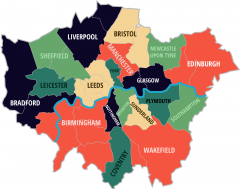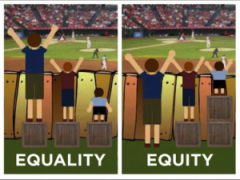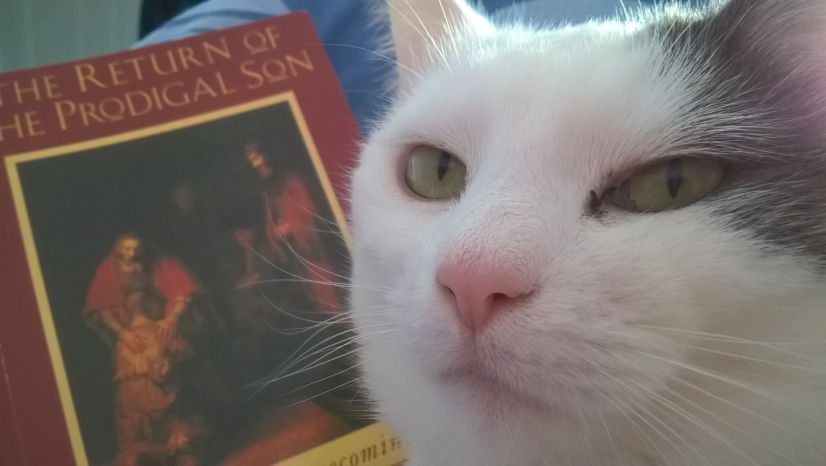Three chapters today to avoid an unhlepful split. As we near the end of Moses' life there is clearly some tidying up to be done.
Inheritance Rights
A group of sisters, Mahlah, Noah, Hoglah, Milcah, and Tirzah approach Moses to protest at the injustice of not being allowed to benefit from their father's inheritance, that because there are no sons, the line ends and the inheritance is lost. Moses consults God and comes up with a set of rules that remain, largely unaltered, to our own time...
First the sons
If no sons then the daughters
If no daughters (hence no children) a man's brothers
If no brothers, a man's uncles
If no uncles then the nearest relative.
It is, I'd suggest quite shocking that it is only in recent years that the British Royal Family has moved to succession based on birth order rather than gender. Yet this shows, perhaps, how radical was the request of the sisters to Moses. Women to have equal inheritance rights to men, at least when there are no men: it's not perfectly equal but it is striking.
Succession Planning
Moses is told again that he will not enter the Land of Promise. His concern is not for himself but for the people - who will take over the thankless task of leading? Joshua is identified and commissioned by the priest.
In the "real world" succession planning is allegedly something to be kept in mind by those in leadership - a recognition that part of the role is to identify and equip those who will continue the work after them. In churches we don't so readily adopt such a view, at least not as I perceive it. Ministers come and then they go, and we seek a new one based on a new set of criteria. But maybe that's too narrow a perspective - a question I've been increaisngly aware of in this time "laid aside" is how, if at all, people can be encouraged and given opportunities to explore their gifts, how we encourage and equip a new generation of deacons or Sunday School leaders or preachers or whatever it is. It is all too easy to get bogged down in "keeping the show on the road" to the extent that I stop looking at the 'bigger picture.'
Holy Convocations
Much of this chunk of text is taken up with detailed instructions from daily, weekly and monthly sacrifices, the Passover, the first fruits and a whole set of special days in the seventh month. One heck of a lot of animals are slaughtered and wine poured, and all in the name of worship.
The convocation literally means "called together" - so pretty similar to other words we use such as congregation (gathering) or ekklesia (called out (for a purpose)).
Holy convocations are 'sacred assemblies', acts of worship. Rather than focussing on the form they take - no-one has carried out animal sacrifices since the second Temple era - perhaps it is good to notice the rhythm that is implied of daily, weekly, monthly and occasional offices/festivals. Literally coming together so frequently is not practical for many in our churches, but there are some congregations that collectively adopt practices that echo the intent - perhaps a daily office or an agreed Bible reading plan; perhaps a monthly prayer meeting or mid-week service...
I think what I am challenged to ponder is what rhythms and practices do I think are of sufficient import that I would want to lay them down as 'reasonable expectations'.... firstly for myself, then perhaps for others...



